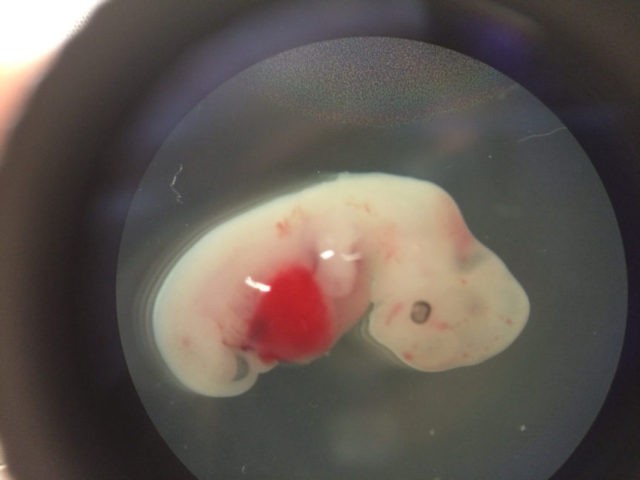TEL AVIV – Israeli researchers said they have found a way to transform skin cells into the three major stem cell types that comprise early-stage embryos, with the next step being to create whole embryos without the need for sperm or eggs.
Dr. Yossi Buganim, who led the research at Hebrew University’s Department of Developmental Biology and Cancer Research, called it a “crazy thing.”
“We did not have a baby in the dish. But the next step would be to organize these cells into a three-dimensional structure and implant them into a foster mother. Then you would get a baby,” Buganim said.
His team isolated five genes to transform murine cells into the embryo itself, the placenta and the extra-embryonic tissues, such as the umbilical cord.
The discovery would have “vast implications” for modelling embryonic defects and shedding light on placental dysfunctions, as well as solving certain infertility problems by creating human embryos in a petri dish, a Hebrew University statement explained.
It could allow researchers “to generate embryos from sterile men and women, using only their skin cells, and generate a real embryo in a dish and implant the embryo in the mother,” Buganim said.
The research was published in Cell Stem Cell.
“To make a baby, we need to organize the cells into a 3-D structure,” Buganim stated. “Then, if done correctly, if we find the exact ratio between the cell types and the right environment, we could generate an embryo.”
He added, however, that that was likely to be a long way off, several decades even.
“An embryo is a three dimensional structure. We need to learn how to put this all together to generate a real embryo,” he said.
The breakthrough by his team though, has propelled “the race to really begin,” he added.
Buganim’s team includes Dr. Oren Ram from Hebrew University’s Institute of Life Science, Professor Tommy Kaplan from Hebrew University’s School of Computer Science and Engineering, and doctoral students Hani Benchetrit and Mohammad Jaber.

COMMENTS
Please let us know if you're having issues with commenting.